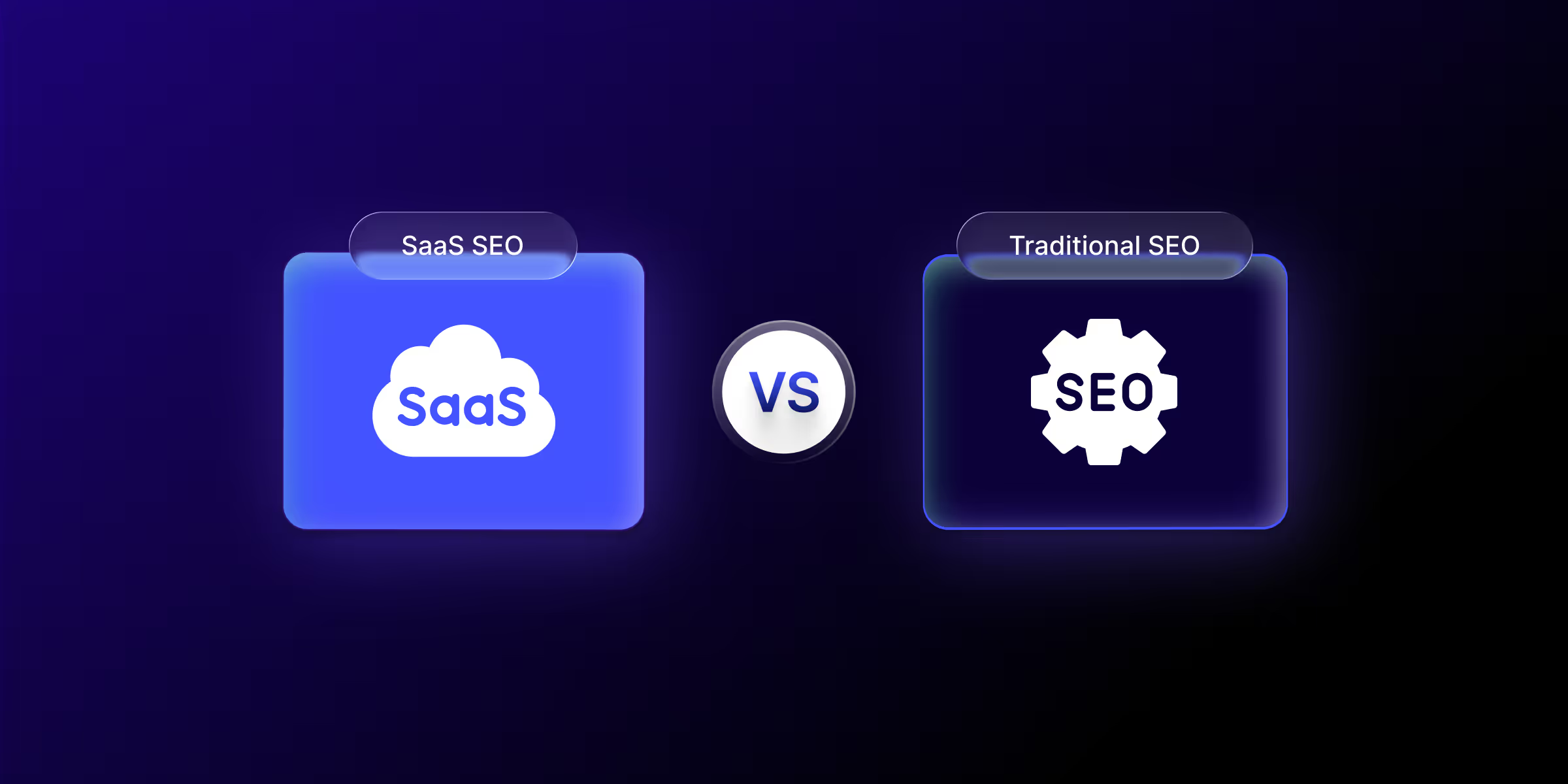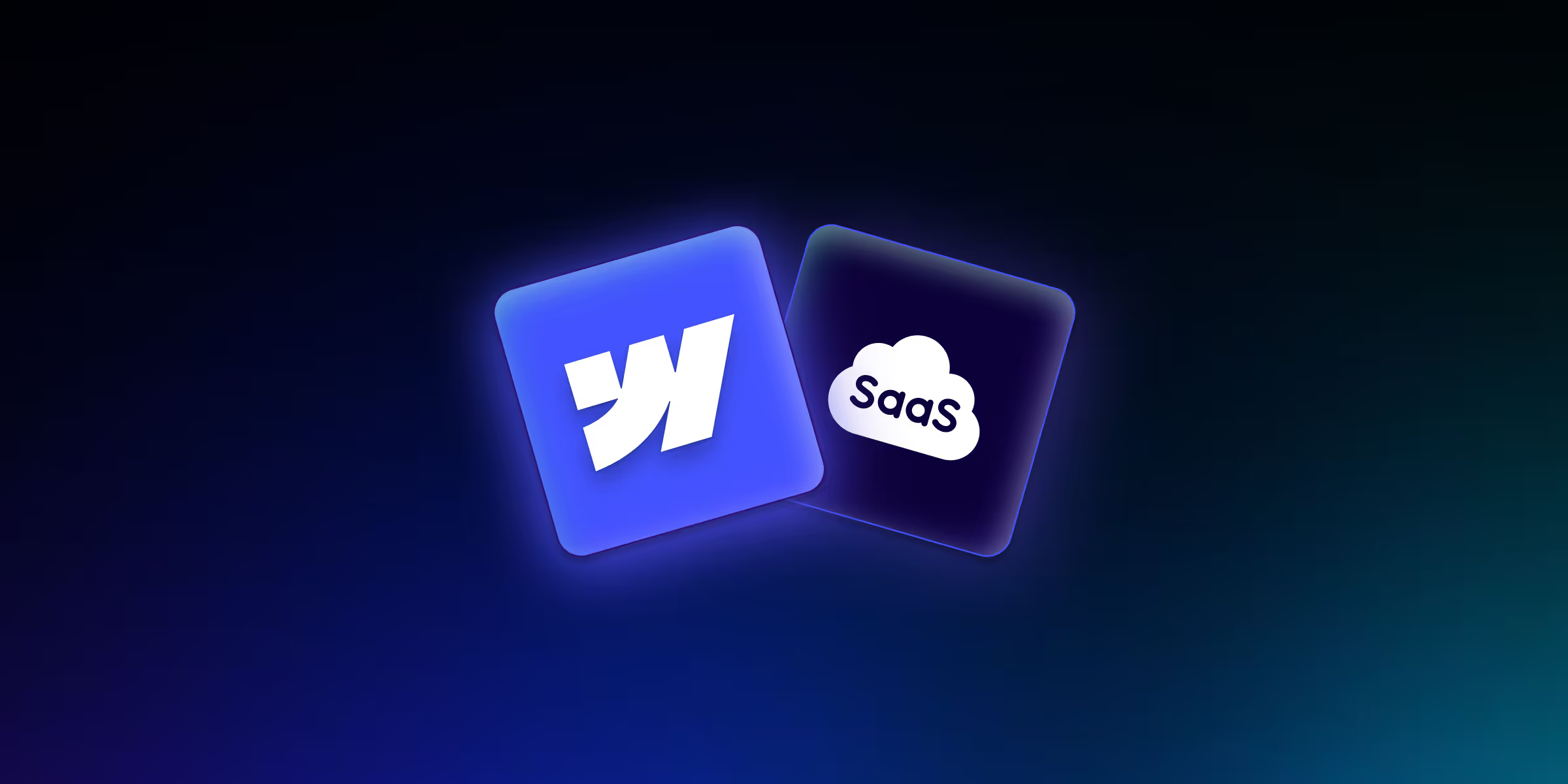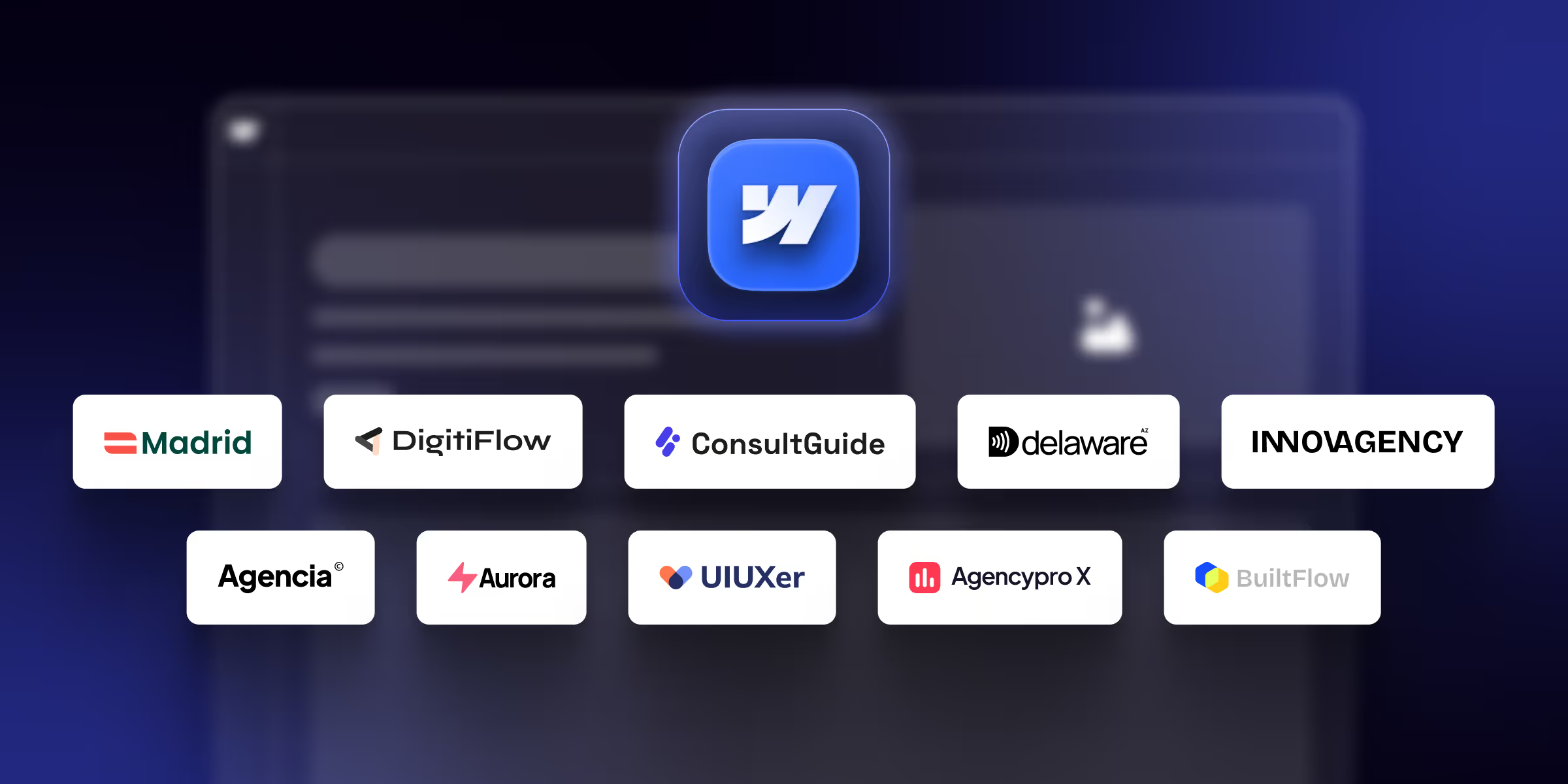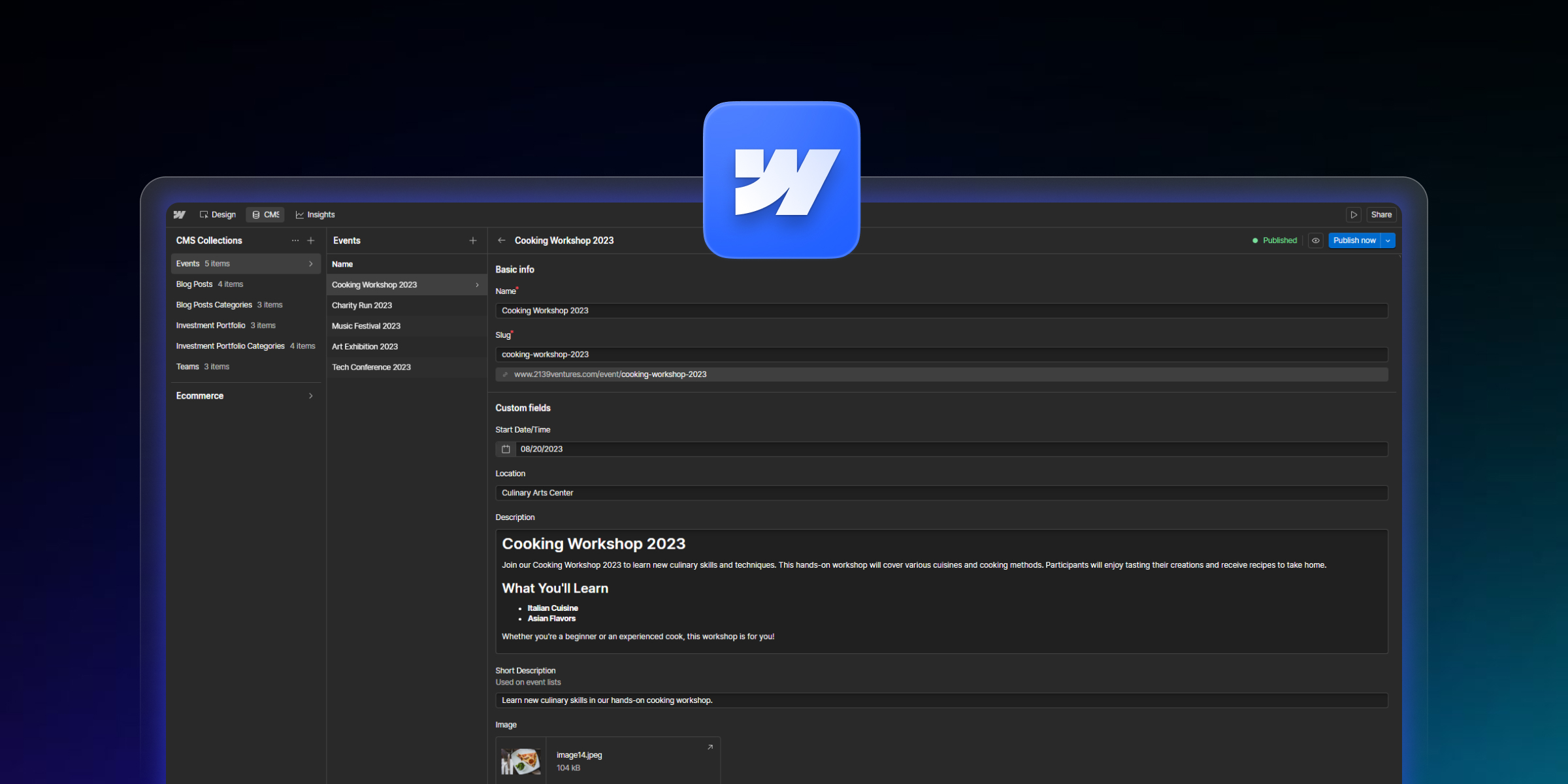SaaS Webflow SEO: Complete Guide for B2B Software Companies
Webflow SEO for SaaS with our complete guide. Optimize for conversions, technical SEO, content strategy, and lead generation. Expert tips for B2B software companies.

Actionable insights to improve SEO, speed, and conversions

While 70%+ of B2B marketers prioritize SEO as their top lead generation channel, some percentage of SaaS companies still use traditional SEO strategies to drive qualified trials growth. This misalignment between SaaS SEO vs traditional SEO approaches costs software companies millions in missed opportunities, inefficient customer acquisition, and poor conversion.
The problem isn't that traditional SEO doesn't work—it's that SaaS SEO requires a completely different strategic framework. Subscription-based businesses face unique challenges, including complex buyer journeys, multi-stakeholder decision processes, extended sales cycles, and the need to optimize for customer lifetime value rather than immediate conversions.
SaaS SEO vs traditional SEO represents more than just tactical differences—it's a fundamental shift in how search optimization supports business objectives. While traditional businesses focus on immediate conversions and local visibility, B2B SaaS SEO.
Whether you're evaluating SEO guides for your business, considering a B2B SaaS SEO agency, or looking for proven SaaS SEO tips, this guide provides the complete framework for choosing and implementing the right approach for your subscription business.
Product and Service-Based Keyword Targeting: Traditional SEO focuses heavily on product names, service categories, and industry-standard terminology that directly describes business offerings.
Keywords like "plumbing services," "Italian restaurant," or "accounting firm" capture users with clear, immediate intent to find and engage specific business types.
Geographic and Local Search Optimization: Traditional businesses benefit from geographic keyword modifiers, including city names, neighborhoods, and "near me" searches. Local SEO represents a major competitive advantage for traditional businesses serving specific geographic markets.
Brand Awareness and Immediate Conversion Focus: Traditional SEO keyword strategies target both brand awareness terms and high-intent commercial keywords that drive immediate conversions. The focus remains on capturing users ready to make immediate purchase decisions or contact businesses for quick service delivery.
Seasonal and Trend-Based Keyword Opportunities: Many traditional businesses benefit from seasonal keyword trends, holiday shopping patterns, and local event-driven searches that create predictable traffic and conversion opportunities throughout the year.
Feature-Focused and Integration-Based Keywords: SaaS SEO requires targeting specific feature combinations, integration capabilities, and technical functionality keywords that traditional SEO rarely addresses. Examples include "CRM with cold email automation," "project management software with time tracking," or "customer support tools with Slack integration."
These feature-specific keywords often have lower search volumes but higher conversion rates because they indicate more qualified, specific user intent.
Problem-Solution Keyword Pairs for Complex Buyer Journeys: B2B SaaS SEO excels at targeting problem-focused keywords in early buyer journey stages, then providing solution-focused content that naturally introduces software capabilities.
Examples include targeting "remote team communication challenges" with educational content, then following up with solution-focused articles about "remote team collaboration software" that position your SaaS as the ideal solution.
Alternative and Comparison Keyword Targeting: SaaS SEO strategies heavily emphasize competitor comparison keywords and alternative solution searches. Users frequently search for "[Competitor] alternative," "best [Competitor] competitors," or "[Product A] vs [Product B]" when evaluating software options.
These comparison keywords often indicate high purchase intent and provide opportunities to present differentiated value propositions directly to users already familiar with competitive solutions.
Bottom-Funnel Trial and Demo Request Optimization: SaaS SEO must optimize for specific conversion-focused keywords, including "[product] free trial," "schedule [software] demo," "[product] pricing," and other high-intent commercial terms that drive qualified conversions rather than general traffic.
Traditional: Informational → Commercial → Transactional: Traditional SEO buyer journeys typically follow straightforward progressions from general information gathering to commercial research to immediate transactions. Content strategies can address these stages with relatively simple funnel approaches.
SaaS: Educational → Evaluation → Trial → Decision: B2B SaaS buyer journeys require more sophisticated content strategies that address extended educational phases, detailed evaluation processes, trial engagement optimization, and complex purchase decisions involving multiple stakeholders and approval processes.
Content Mapping for Extended SaaS Buyer Journeys: SaaS SEO requires comprehensive content mapping that addresses every stage of extended buyer journeys while providing value at each touchpoint. This includes educational thought leadership, detailed competitive analyses, implementation guides, and customer success resources.
Multi-Touchpoint Keyword Strategy Requirements: SaaS companies must optimize for multiple keyword touchpoints throughout extended buyer journeys, ensuring visibility at awareness, consideration, evaluation, and decision stages while maintaining consistent messaging and positioning.
Why SaaS Benefits More from Long-Tail Targeting: B2B SaaS products often solve specific, complex problems that users describe using detailed, technical language. Long-tail keywords like "customer support software for SaaS companies with API integration" typically convert at much higher rates than generic terms like "customer support software."
Industry + Software Combination Opportunities: SaaS SEO strategies should heavily target industry-specific software combinations such as "project management for marketing agencies," "CRM for real estate professionals," or "customer support for e-commerce businesses." These combinations often have lower competition while attracting highly qualified prospects.
Feature-Specific Long-Tail Conversion Potential: Feature-specific long-tail keywords often represent the highest-converting traffic for SaaS companies because they indicate users with specific, technical requirements who are likely to convert when they find solutions that meet their exact needs.
Niche Market Capture Through Specialized Keywords: SaaS companies can dominate niche markets by targeting highly specific keyword combinations that larger competitors might overlook, creating sustainable competitive advantages in specialized market segments.
Product Descriptions and Service Pages Focus: Traditional SEO content strategies center around clear product descriptions, service explanations, and business information that help users understand offerings and make immediate contact or purchase decisions. Content typically focuses on features, benefits, pricing, and availability.
Local and Geographic Content Optimization: Traditional businesses benefit from location-specific content, including service area descriptions, local market insights, community involvement, and geographic keyword optimization that builds local search authority and relevance.
Promotional Content for Immediate Conversions: Traditional SEO often emphasizes promotional content, including special offers, seasonal discounts, limited-time deals, and immediate conversion incentives that drive quick purchase decisions and revenue generation.
Educational Content for Trust Building and Authority: SaaS SEO requires extensive educational content that builds trust and establishes industry authority before any sales conversations begin. This includes comprehensive guides, industry analysis, best practices articles, and thought leadership content that positions companies as trusted advisors.
Technical Documentation and Feature Explanations: B2B SaaS content must thoroughly explain complex technical concepts, integration capabilities, implementation processes, and feature functionality in ways that serve both technical evaluators and business decision-makers.
Comparison Content Targeting Competitor Keywords: SaaS SEO strategies heavily emphasize detailed competitor comparisons, alternative solutions, and positioning content that helps to understand differentiated value propositions relative to other market options.
Customer Success Stories and Detailed Case Studies: SaaS companies need comprehensive case studies that demonstrate real business impact, implementation processes, and long-term value delivery. These case studies often become some of the highest-converting content for qualified prospect attraction.
Traditional SEO Content Types:
SaaS SEO Content Types:
Traditional: Accessible, Broad-Appeal Content: Traditional SEO content typically targets broad audiences with accessible language, straightforward explanations, and general appeal that serves diverse customer segments without excessive technical complexity.
SaaS: Technical Depth for Informed Decision-Makers: B2B SaaS SEO content must provide sufficient technical depth to satisfy informed business and technical decision-makers while remaining accessible to various stakeholder types involved in software evaluation processes.
Balancing Technical Accuracy with SEO Optimization: SaaS content creators must balance technical accuracy and detailed explanations with SEO optimization requirements, ensuring content ranks well while providing the depth and credibility that B2B SaaS buyers expect.
Traditional: Product/Service Category Organization: Traditional websites typically organize content around product categories, service types, geographic locations, and business divisions that reflect how customers naturally think about and search for business offerings.
SaaS: Feature-Based and Solution-Oriented Structure: SaaS websites require more sophisticated architectures that organize content around features, use cases, industries, integrations, and customer journey stages while maintaining logical navigation for complex product offerings.
User Journey Optimization Differences: Traditional websites optimize for relatively straightforward user journeys from awareness to contact or purchase. SaaS sites must accommodate complex, multi-session journeys that span weeks or months while serving different stakeholder types with varying information needs.
Internal Linking Strategy Variations: SaaS SEO requires more sophisticated internal linking that connects related features, use cases, integration information, and educational content while guiding users through logical evaluation sequences and supporting topical authority development.
Traditional: Sales and Lead Generation Metrics: Traditional SEO tracking focuses on immediate conversions, including phone calls, contact form submissions, online purchases, and other direct response actions that translate quickly into business revenue.
SaaS: Trial Signups, Demo Requests, Customer Lifecycle: B2B SaaS SEO must track complex conversion sequences, including trial signups, demo requests, trial-to-paid conversions, customer onboarding completion, and long-term customer value attribution across extended customer lifecycles.
Attribution Modeling for Complex Buyer Journeys: SaaS companies require sophisticated attribution modeling that accounts for multiple touchpoints, extended research periods, and various content interactions throughout complex buyer journeys that often span months.
Traditional: General User Experience Optimization: Traditional websites benefit from standard page speed optimization that improves user experience and search rankings without specific performance requirements beyond general best practices.
SaaS: Conversion-Critical Performance Requirements: SaaS websites require exceptional performance optimization because page speed directly impacts trial conversion rates and influences prospect perceptions of software quality and technical competence.
Impact on Trial Signup and Demo Request Rates: Research shows that 2-second delays in SaaS website loading speeds can reduce trial conversion rates by 15-25%, making performance optimization business-critical rather than just SEO-beneficial.
Technical Credibility Implications for Software Companies: SaaS companies with slow or poorly performing websites immediately undermine credibility with technical decision-makers who question software quality based on website performance and user experience.
Traditional: Local Search and Immediate Action Focus: Traditional business mobile optimization focuses on local search visibility, click-to-call functionality, directions, and immediate action facilitation that serves local customer needs.
SaaS: B2B Research Behavior on Mobile Devices: B2B SaaS mobile optimization must accommodate extended research sessions, detailed content consumption, and multi-device journey continuity that supports complex evaluation processes on mobile platforms.
Multi-Device Buyer Journey Optimization: SaaS SEO must ensure seamless experiences across devices while maintaining content accessibility and conversion functionality throughout extended, multi-session buyer journeys.
Progressive Web App Considerations for SaaS: Some SaaS companies benefit from progressive web app implementations that provide app-like experiences for prospects evaluating software capabilities and conducting extended research sessions.
Local Business Directories and Citations: Traditional businesses build authority through local directory listings, citation building, chamber of commerce memberships, and community organization participation that establishes local market presence and credibility.
Industry Association and Chamber Listings: Professional associations, trade organizations, and business chambers provide valuable link opportunities while establishing industry credibility and local business authority.
Geographic and Community-Based Link Opportunities: Traditional businesses benefit from community involvement, local sponsorships, regional partnerships, and geographic content that attracts local links and establishes market presence.
Press Releases for Local and Regional Coverage: Local media coverage, community event participation, and regional business accomplishments provide traditional businesses with valuable link opportunities and market visibility.
Software Directory and Review Platform Optimization: B2B SaaS companies must optimize profiles on platforms like G2, Capterra, Software Advice, and industry-specific directories while encouraging customer reviews that build authority and drive referral traffic.
Integration Partner Link Opportunities: SaaS companies can develop valuable link relationships with integration partners, complementary software providers, and technology ecosystem participants that provide relevant, high-authority backlinks.
Industry Publication Guest Posting and Thought Leadership: SaaS link building heavily emphasizes thought leadership content for industry publications, expert roundups, and collaborative content that positions companies as industry authorities while generating high-quality backlinks.
Traditional: Local Competitor Analysis Focus: Traditional businesses analyze local and regional competitors for market positioning opportunities, service differentiation, and local SEO advantages within manageable competitive landscapes.
SaaS: Global Competitor and Feature Comparison Analysis: SaaS companies must conduct comprehensive global competitive analysis that examines feature sets, positioning strategies, content approaches, and market positioning across numerous direct and indirect competitors.
Market Positioning Through Differentiated Content: SaaS SEO requires creating content that clearly differentiates solutions from competitive alternatives while addressing prospect concerns about choosing between multiple viable options.
Traffic Growth and Keyword Ranking Improvements: Traditional SEO success is measured through organic traffic increases, keyword ranking improvements, search visibility enhancements, and general website performance metrics that indicate growing search presence.
Local Search Visibility and Map Pack Appearances: Traditional businesses focus heavily on local search rankings, Google Business Profile performance, map pack appearances, and local citation consistency that drives geographic market visibility.
Brand Awareness and Direct Search Increases: Traditional businesses measure brand awareness growth through direct search increases, branded keyword performance, and overall market recognition that indicates successful brand building.
Organic Trial Signup Rates and Demo Requests: B2B SaaS SEO success is measured through trial conversion rates, demo request quality, qualified lead generation, and progression through evaluation processes rather than just traffic volume.
Customer Acquisition Cost from Organic Channels: SaaS companies must calculate customer acquisition costs from organic search compared to paid advertising and other channels, measuring long-term efficiency and sustainability of SEO investments.
Customer Lifetime Value from Organic Traffic: The ultimate SaaS SEO metric is customer lifetime value from organic acquisitions, measuring not just immediate conversions but long-term subscription value and customer retention rates.
Pipeline Velocity and Sales Cycle Acceleration: SaaS SEO can accelerate sales cycles by educating prospects before sales engagement, reducing time-to-close and improving sales team efficiency through better qualified organic leads.
Multi-Touchpoint Customer Journey Tracking: SaaS companies must implement sophisticated attribution modeling that accounts for multiple content touchpoints, extended research periods, and various interaction types throughout complex buyer journeys.
Content Influence on Trial-to-Paid Conversions: Advanced SaaS SEO measurement includes analyzing which content types and topics most effectively support trial-to-paid conversions, customer onboarding success, and long-term engagement.
Long-Term Customer Value Attribution: SaaS SEO measurement must connect organic traffic acquisition to long-term customer value including subscription renewals, account expansion, and customer referrals that compound initial acquisition success.
Churn Reduction Through SEO-Driven Engagement: SaaS companies can measure how SEO-driven content engagement affects customer retention, feature adoption, and account expansion throughout customer lifecycles.
Lack of Understanding of SaaS Business Models: Most traditional SEO agencies don't understand subscription business models, customer lifetime value optimization, trial-to-paid conversion requirements, or the complex stakeholder dynamics involved in B2B SaaS purchase decisions.
Inadequate Conversion Tracking for Subscription Businesses: Generic SEO agencies typically implement basic conversion tracking that doesn't account for multi-stage SaaS conversion processes, customer lifecycle attribution, or long-term value measurement that SaaS businesses require.
Missing Expertise in Technical Product Marketing: SaaS companies need agencies that understand technical product marketing, feature positioning, integration marketing, and the ability to create content that serves both technical and business decision-makers effectively.
Proven Track Record with B2B SaaS Companies: B2B SaaS SEO agencies must demonstrate specific experience with software companies, including case studies, client testimonials, and measurable results improving trial conversions, customer acquisition costs, and subscription growth.
Understanding of Complex Buyer Journeys and Stakeholder Mapping: Effective SaaS SEO agencies understand multi-stakeholder decision processes, extended evaluation periods, and content requirements for different buyer personas throughout complex B2B SaaS sales cycles.
Technical Content Creation and Optimization Expertise: SaaS-specialized agencies must demonstrate the ability to create technical content that ranks well while serving informed business and technical decision-makers who evaluate software solutions professionally.
200+ SaaS Websites Optimized with Proven Methodologies: theCSS Agency has successfully optimized over 200 SaaS websites using specialized methodologies developed specifically for subscription-based businesses, technical products, and complex B2B SaaS sales cycles.
Webflow Premium Partner Status with SaaS Specialization: As an official Webflow Premium Partner since August 2023, theCSS Agency combines deep platform expertise with specialized SaaS SEO knowledge that addresses both technical implementation and business optimization requirements.
Understanding of Both Technical Implementation and Business Goals: Our team understands both the technical aspects of SaaS SEO implementation and the business objectives that drive B2B SaaS success including trial conversions, customer acquisition costs, and subscription revenue growth.
The distinction between SaaS SEO vs traditional SEO represents more than tactical differences—it's a fundamental strategic choice that determines whether your optimization efforts support or undermine your subscription business objectives. While traditional SEO focuses on immediate conversions and local visibility, B2B SaaS SEO requires specialized approaches that address complex buyer journeys, technical content requirements, and customer lifetime value optimization.
SaaS companies that continue using traditional SEO approaches miss critical opportunities to capture qualified prospects, reduce customer acquisition costs, and build sustainable competitive advantages through organic search. The specialized requirements of B2B SaaS SEO, including feature-focused keyword strategies, technical content creation, competitor comparison optimization, and conversion tracking throughout customer lifecycles simply aren't addressed by generic optimization approaches.
Ready to transform your SaaS growth through specialized SEO strategies? theCSS Agency's proven SaaS SEO methodology has helped 200+ software companies achieve sustainable organic growth, reduced acquisition costs, and improved trial conversion rates through comprehensive optimization approaches designed specifically for subscription businesses.
Our team combines Webflow Premium Partner technical expertise with deep B2B SaaS industry knowledge to deliver optimization strategies that drive qualified trials, accelerate customer acquisition, and support long-term subscription growth. From technical content creation and competitor positioning to conversion optimization throughout customer lifecycles, we provide the specialized SaaS SEO expertise that generic agencies simply cannot match.
Schedule your free SaaS SEO strategy consultation today and discover exactly how specialized optimization approaches can reduce your customer acquisition costs, improve trial conversion rates, and accelerate sustainable growth. No contracts, no generic proposals—just expert analysis and actionable recommendations from the team that understands the difference between SaaS SEO and traditional approaches.
SaaS SEO differs fundamentally from traditional SEO due to subscription business models, extended buyer journeys, multi-stakeholder decisions, and focus on customer lifetime value rather than immediate conversions. SaaS companies require specialized keyword strategies, technical content creation, and conversion optimization throughout complex sales cycles that traditional SEO doesn't address effectively.
While some traditional SEO fundamentals apply to SaaS businesses, generic tactics typically fail because they don't account for trial-to-paid conversion requirements, technical content needs, competitor comparison strategies, or the educational content required for B2B SaaS buyer evaluation processes.
SaaS SEO typically shows initial improvements in 3-6 months with significant results visible within 6-12 months. However, SaaS companies often see faster improvements in lead quality and trial conversion rates before overall traffic increases become substantial, due to better qualified prospect targeting.
The most critical SaaS SEO metrics include organic trial conversion rates, customer acquisition costs from organic channels, customer lifetime value attribution, trial-to-paid conversion rates, and subscription revenue attribution rather than just traffic volume or keyword rankings.
B2B SaaS companies typically benefit significantly from specialized SaaS SEO agencies that understand subscription business models, technical product marketing, complex buyer journeys, and conversion optimization throughout customer lifecycles rather than generic agencies focused on traditional optimization approaches.

Webflow SEO for SaaS with our complete guide. Optimize for conversions, technical SEO, content strategy, and lead generation. Expert tips for B2B software companies.

Find the best Webflow agency templates for your business in 2026. Compare features and pricing, and find the perfect match for your business.

Learn how to import content into Webflow CMS with 4 proven methods. Step-by-step CSV import tutorial, bulk updates, field mapping, and migration strategies.
Quick Turnaround. No Contracts. Cancel Anytime. Book a 30 minutes consulting call with our expert.